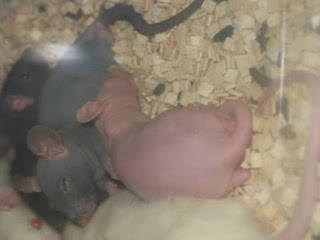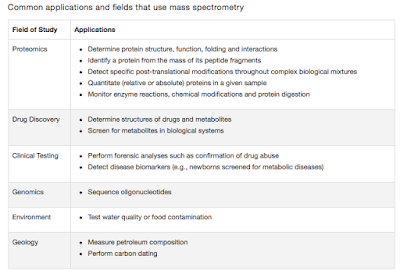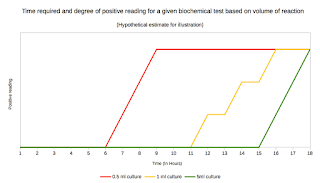Microbiophobia- Bubble blown out
I have been writing for some time on the pathological inflictions of the microbe on the humans. It doesn’t matter if you are a medical professional or not, you are concerned about your health. The more knowledge we acquire at the molecular level, more research papers claiming the nastiness of the microbe, and the more public news paper highlighting some epidemics or pandemics, people are scared to core. Many have come up with this concept of “Microbiophobia”. Oh yeah! I know a very vague and probably very dry, sterile topic to talk about in this blog. Yet, let me try to give u a bird’s view of this.
Before I just began inscribing I typed this word in google search box “Microbiophobia”. And to my surprise, there was “14800 results”. Well, that indicates to me how serious people are about this.
Imagine a new born never exposed to any microbe. To maintain him the same would be an exceptional task. He can eat only autoclaved food, live inside a microbe free room not allowed to mix with anybody, nobody even cuddles him. Oh! That baby would just not have a normal life. And even after such extra ordinary measures the baby would be weak and may not be scoring well immunologically. Such a test has not been done on humans, but some of the poor mice did have to. The reason why I’m starting with human baby as a hypothetical assumption is that we are most caring about the newborn, where we try the maximum to avoid any microbial contact. Sure, that makes sense, because a new born isn’t equipped well with an immune system to combat.
But if the parent insist it and reduce the exposure limits it could be really dangerous. We are equipped with a very smart immune system. But the smartness is mostly adaptive. This means the immune system has to be trained to identify pathogens and their components. A person who has a normal flora will do this job, by constantly challenging the immune system and keeping it busy. If you wouldn’t give your immune system a chance then it will not react when there is a real need. Certain people are too cautious of Microbial flora. They insist on too much sterility of materials they use. And their immune system is just too weak. (On the other hand there are people who are just too dirty and the immune system is unable to handle). It’s the science giving wrong information? No, I don’t believe so. Science says the right thing but what many understand is the wrong side of it (“What I said is right, but what you understood is wrong”). Science says that some microbes are pathogenic and people understand that microbes are bad (They simply forgot to digest the “Some”!!). What I mean to impress in you is that only some are bad, not all. (Jump to this link to have a neat idea on good vs. bad bugs).
Photo: Germ free animals (Click here for source)
The microbes which are present in our body as normal commensal are involved in various functions such as keeping the immune system active, resisting the invading bacteria etc which are well known. It also serves some less known functions such as attractiveness to mosquito (Refer Niels O. Verhulst etal), susceptibility to auto immune diseases (click here), and brain functioning (click here). So better keep your microbiota in good shape.
So now I turn the question back to the readers. Is super hygiene a good practice?
My plain answer is not. It is enough if you are relatively hygienic. It has been shown that children who play with soil are less asthmatic compared to children who are bred in very hygiene (Am sorry I don’t remember the reference were I read it, but believe me). Another common example is use of hands to eat rather than using a well sterilized spoon. The normal skin flora is much better.
I’m saying all this just to impress a single point. Microbiophobia is an increasing problem (come on, we already have enough phobia’s to deal with). Too frequent use of disinfectants in day to day life is not indicated. If you are Health care worker, this doesn’t apply because the environment is more likely to contain dangerous organism in higher concentration. Your infrequent hygiene may affect you or your patients and may lead to Hospital Acquired infections. If there’s a child in your home and want to play outside in ground let him. Don’t torture him with all the coverings possible and smear him with all the disinfectants you know. Once he finishes playing, give him a shower so as not to overload the system.
Too much or too less, both the ends are the problems.
Further reading:
1. Getting the Dirt On Immunity: Scientists Show Evidence for Hygiene Hypothesis (Link).
http://www.sciencedaily.com/releases/2012/03/120322142157.htm
Further reading:
1. Getting the Dirt On Immunity: Scientists Show Evidence for Hygiene Hypothesis (Link).
http://www.sciencedaily.com/releases/2012/03/120322142157.htm






Comments
Post a Comment